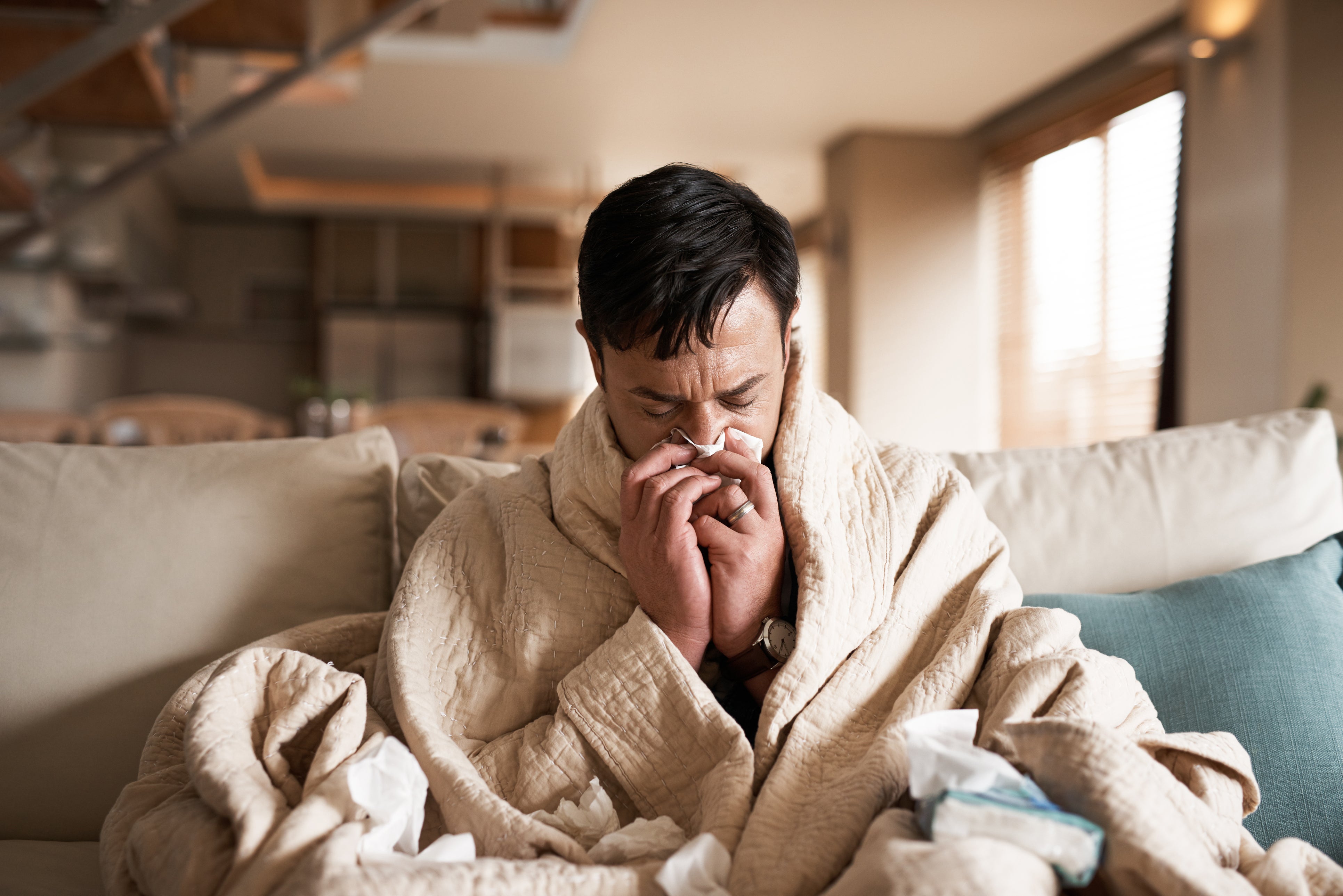Pneumonia: What are the main symptoms and how dangerous is it?
The singer announced he had contracted the infection in a recent Instagram post
Your support helps us to tell the story
From reproductive rights to climate change to Big Tech, The Independent is on the ground when the story is developing. Whether it's investigating the financials of Elon Musk's pro-Trump PAC or producing our latest documentary, 'The A Word', which shines a light on the American women fighting for reproductive rights, we know how important it is to parse out the facts from the messaging.
At such a critical moment in US history, we need reporters on the ground. Your donation allows us to keep sending journalists to speak to both sides of the story.
The Independent is trusted by Americans across the entire political spectrum. And unlike many other quality news outlets, we choose not to lock Americans out of our reporting and analysis with paywalls. We believe quality journalism should be available to everyone, paid for by those who can afford it.
Your support makes all the difference.Westlife singer Mark Feehily has confirmed that he will miss the band’s forthcoming tour dates after being diagnosed with pneumonia.
The 42-year-old singer was forced to pull out of recent shows in Newcastle after coming down with a fever, with doctors later confirming it was pneumonia.
The singer has been performing around the world with bandmates Nicky Byrne, Shane Filan and Kian Egan as part of the Wild Dreams tour, which is set to conclude in Bangkok in February 2023.
In an Instagram post shared on Monday (28 November), however, the singer thanked fans for their goodwill messages and opened up about feeling “gutted” to miss his recent shows.
“I know it’s scary when you first hear the word ‘pneumonia’ but thankfully I got to the doctor and hospital very quickly and got on the antibiotics as soon as possible, so everything is currently under control.”
He added that he had been advised to rest and continue his course of medication, stating that he was “feeling a bit better everyday” and that it “should all be over in no time”.
But what is pneumonia and what are the symptoms to look out for? Here’s everything you need to know.
What is pneumonia?

Pneumonia is swelling (inflammation) of the tissue in one or both lungs.
According to the NHS, it's usually caused by a bacterial infection or a virus.
Pneumonia can affect people of any age, but it's more common and can be more serious in certain groups of people, such as the very young or the elderly.
People in these groups are more likely to need hospital treatment if they develop pneumonia.
Other groups that have an increased risk of developing pneumonia include babies and very young children, people who smoke, people with other health conditions, such as asthma, cystic fibrosis, or a heart, kidney or liver condition, and people with a weakened immune system – for example, as a result of a recent illness, such as flu, having HIV or AIDS, having chemotherapy, or taking medicine after an organ transplant.
What causes pneumonia?
Pneumonia is usually the result of a bacterial infection, but other forms exist, such as viral pneumonia, which is caused by a virus, such as Covid-19, and aspiration pneumonia, which can be caused by breathing in vomit, a foreign object, such as a peanut, or a harmful substance, such as smoke or a chemical.
Hospital-acquired pneumonia develops in hospital while being treated for another condition; people in intensive care on breathing machines are particularly at risk of this.
Fungal pneumonia is rare in the UK and tends to affect people with a weakened immune system.
What are the symptoms of pneumonia?

Common symptoms of pneumonia can include:
- A cough, which may be dry, or produce thick yellow, green or brown blood-stained mucus (phlegm)
- Difficulty breathing - you might feel breathless, even while resting, or experience rapid or shallow breathing
- High temperature (fever)
- Rapid heartbeat
- Sweating and shivering
- Loss of appetite
- Chest pain, which gets worse when breathing or coughing
- Feeling generally unwell
Less common symptoms can include:
- Coughing up blood
- Headaches
- Feeling or being sick
- Wheezing
- Joint and muscle pain
- Fatigue
Symptoms of pneumonia can develop suddenly over 24 to 48 hours, or they may come on more slowly over several days.
When should I get help?
If you feel unwell and have symptoms of pneumonia, contact your GP.
The NHS recommends that those with a high temperature should stay at home and avoid contact with others until you feel better.
How is pneumonia treated?
Mild pneumonia tends to be treated at home with antibiotics and plenty of rest and water.
At-risk groups may need to be treated in hospital, as it can lead to serious complications, which can be fatal depending on a person’s health and age.




Join our commenting forum
Join thought-provoking conversations, follow other Independent readers and see their replies
Comments